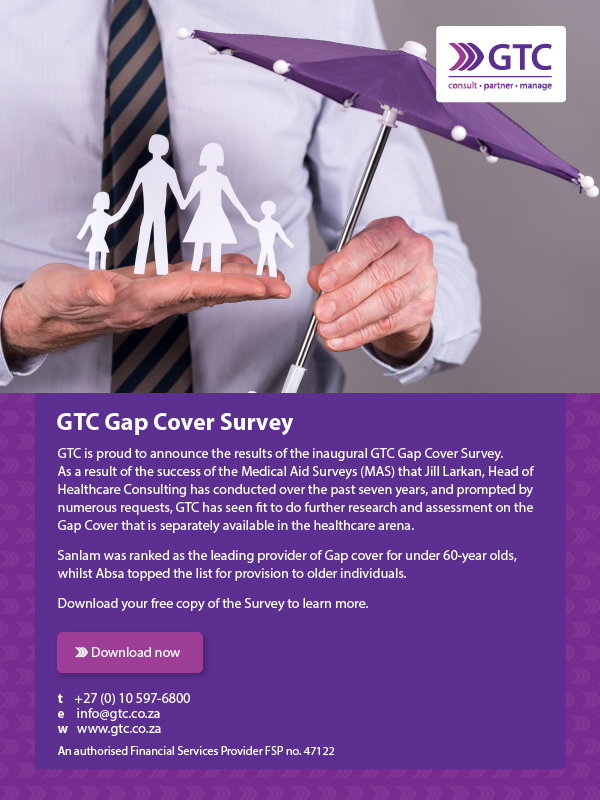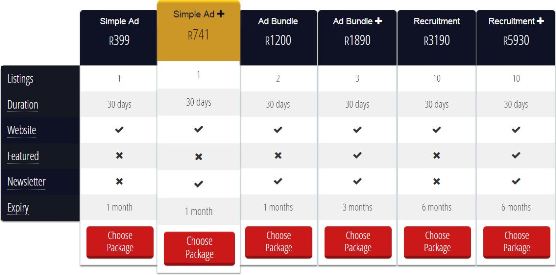|
To Subscribe please click
here |
 |
|
Moonstone Monitor - 28 June 2018 |
|
|
 |
Read Moonstone Monitor for CPD
purposes
Click here to register.
|
| |
|
|
| |
|
|
 |
|
|
|
Education is the movement from darkness to light - Allan Bloom |
| |
|
|
Distributed to 52,273 subscribers.
To advertise with us
click here |
|
| |
|
From the Crow's Nest |

|
|
Can I be exempted from Fit and Proper requirements? |
In terms of section 44(4) (a) of the FAIS Act any FSP, Representative or
Key Individual may apply to be exempted from any provision/s of the Act. As a
result, the FSCA regularly issues FAIS Notices on exemptions of particular
persons from the qualification, regulatory examination and fees requirements.
In the De Wet appeal, the Appellant lodged an appeal against the decision of the
Registrar not to grant her exemption application. The Registrar was of the
opinion that the exemption would be in conflict with the public interest,
prejudice the interests of clients and frustrate the goals of the FAIS Act, 37
of 2002.
The Registrar refused to grant the Appellant an exemption in terms of Section
44(4) of the FAIS Act on the basis that she did not comply with the
determination of the Fit and Proper Requirements, particularly the qualification
and examination requirements.
Reasons why the Appellant failed to make out a case for exemption
-
She was unable to provide proof of her compliance with the qualification
requirements.
-
Although she was appointed as a representative for Harzel Financial Services
(Pty) she failed to obtain the requisite qualification in the allotted time
span.
-
Cognisance was taken of the fact that she failed to comply with the
regulatory examination
requirements as a result of a medical condition at the time. However there were
window periods between her various medical conditions between 2013 and 2015
where she could have attempted the exams.
-
The Registrar acknowledged that she has attempted both the RE 1 (5 occasions)
and RE 5 (2 occasions).
-
She also failed to complete the required credits for the subcategories that
she was authorised for.
Reference to the legislation
|
1. |
Section 10 of the Fit and Proper Requirements provides that financial service
providers, key individuals and representatives who were authorised, approved or
appointed between September 2004 and 31 December 2007 were required to comply
with their qualification requirements. |
|
2. |
In terms of Section 3(7) and Section 5(4) of the Fit and Proper Requirements,
read together with Section 4(4) of the Exemption of Services under supervision
in terms of the Requirements and Conditions 2008 (The exemption notice), a
representative may work under supervision for the period not exceeding 6 years
after the date of appointment, whilst obtaining the required experience,
qualification and regulatory examination. |
|
3. |
In terms of Section 4(6)(e) of the said Exemption notice, the representative
must inter alia obtain the relevant qualification by 30th June after the expiry
of 72 months from the date of first appointment as a representative (DOFA). |
|
4. |
The Registrar is empowered to grant exemptions under Section 44. Section
44(4) of the FAIS Act provides that the Registrar may exempt any person on
reasonable grounds from any provision of the Act provided that the Registrar is
satisfied that: |
| |
a. |
The rendering of financial services by that person is already partially, or
wholly regulated by another law or; |
| |
b. |
The application of a provision of the Act will cause that person or clients
of that person financial or other hardship or prejudice and; |
| |
c. |
Granting of the exemption will not conflict the public interest, prejudice
the interest of clients or frustrate their achievement of the objectives of the
Act. |
|
5. |
The Registrar may only exempt a person if reasonable grounds exist to do so,
and only if the Registrar is satisfied that the factors referred to in Section
44(4) are met. |
The Appellant’s grounds of appeal
-
She attended several courses and obtained credits. She was under the
impression that the information regarding the credit system was monitored by the
FSB.
-
She intended to obtain 40 credits by May 2018 and 75 credits by November 2018
with the remainder to be obtained in January 2019.
-
She wrote two REs in December 2017 and January 2018, but was unsuccessful by a
negligible percentage.
-
She practises with integrity and has always furnished her clients with proper
advice.
-
Despite her medical conditions, she still attempted the exams.
-
She financially supported her husband who was retrenched.
-
She has enrolled for various wealth management courses.
The Registrar referred to two similar cases where the Board took cognisance of
the Appellants’ attempts at the RE 1 exam and failing to fulfil this condition
would be placing the public at risk. The Registrar therefore has a statutory
obligation to ensure that the FSPs and their representatives are fully compliant
with the provisions of the Act and all other legislation.
In this case the Registrar therefore found no reasonable ground to warrant an
exemption from either qualification or the examination requirements.
The Appeal Board took note of the various interactions between the appellant and
the Registrar but found that the reasons for refusing the exemption application
were justified. A further shortfall of the Appellants application was that she
failed to furnish supporting documents and fully advance comprehensive reasons
in motivating her exemption application (refer to Section 8(1) of the Fit and
Proper Requirements).
Comment
From older FSB communication it was noted that the Appellant’s
authorisation had been
suspended and lifted before, indicating that the FSCA granted exemptions during
prior reporting periods. Unfortunately, this cannot continue indefinitely as the
FSCA needs to consider the interest of the public as it strives to create a
professional industry.
Click here to read Board Notice 194 of 2017, about the determination of the Fit
and Proper Requirements for Financial Service Providers.
Click here to read our article of 25 January 2018 that focussed on the
Qualifications, Experience and Regulatory Exams. |
|
|
|
| |
 |
|
Your Practice Made Perfect |

|
|
Insurance Act commences on the 1st of July 2018 |
National Treasury announced on 27 June 2018 that the Insurance Act of
2017 will commence on 1 July 2018.
The Prudential Authority and FSCA’s Joint Communication 1 of 2018 sets out which instruments,
issued under the Long-term and Short-term Insurance Acts, are still in
force and which are no longer applicable / withdrawn.
Click here to download the National Treasury’s media release
Click here to download the Insurance Act
Click here to download the Joint Communication 1 of 2018. |
|
|
|
|
|
 |
| |
|
Industry reaction to proposed healthcare changes
|
Some of the more contentious statements made by the Minister of Health
in his media release on the new Healthcare Bills elicited interesting
responses from industry players.
Professor Alex van den Heever, who heads Social Systems Administration
and Management at Wits University said: “The NHI can never be
implemented as proposed, as it is not appropriate to put billions –
about R170-billion a year currently – in the hands of one politician.”
SECTION27 supports the extension of healthcare to as many South Africans
as possible, but until the public health system is fixed and private
healthcare better regulated, this will remain a chimera. It also notes:
“Until corruption and mismanagement is seen to be decisively dealt with,
such reliance will be a hard sell for South Africans who have witnessed
the large scale looting of SoEs and the failure of national funds such
as the Road Accident Fund as well as, the failure of provincial
departments of health.”
Click here to read a more detailed summary of their views. |
|
|
|
| |

|
| |
|
Class of Business – The basics
|
On 1 August 2018, Section 29(1)(a) and (2) of the Fit and Proper
requirements with regards to Class of Business Training requirements for
FSPs, Key Individuals and Representatives comes into effect.
Just to recap:
Who should attend Class of Business training?
-
All FSPs, Key Individuals and Representatives appointed after 1 April 2018.
-
FSPs, Key Individuals and Representatives who seek authorisation,
approval or appointment for new financial product categories after 1 April 2018.
-
Representatives working under supervision as at 1 April 2018, or
appointed under supervision after 1 April 2018.
-
Certain exemptions apply, depending on the type of business one does,
and how it is conducted. Please contact your compliance officer if in
doubt.
Who is exempt from Class of Business training?
FSPs, KIs and Reps, authorised prior to 1 April 2018 are considered to
have completed the CoB training in view of their past experience and are
therefore exempt from CoB training, unless they add new products to
their licence.
By when?
A Rep working under supervision on 1 April 2018, or who is appointed
under supervision between 1 April and 31 July 2018, has until 31 July 2019 to meet the CoB training requirements.
As things currently stand, appointees from 1 August 2018 onwards are not
included in this transitional arrangement, and will not be allowed to
conduct business prior to the successful completion of the CoB training.
Moonstone offers COB training
Moonstone Business School of Excellence (MBSE) is a duly accredited
institution and will provide training in all nine
CoB modules
stipulated in the Act.
More information
Visit the Class of Business page on the MBSE website:
http://www.mbse.ac.za/qualifications/class-of-business/
If you require more information regarding the fees and implementation
dates please contact Veronica Grobler on 087 702 6429 or at
veronica@mbse.ac.za.
For information on Corporate Packages, please contact Sheila Olckers on
021 883 8000 or
SheilaO@moonstoneinfo.com. |
|
|
|
| |

|
Technologically Speaking

Moonstone Information Refinery
|
|
Can insurers use social media to validate claims? |
Last year, City Press reported on a case in the US where a woman’s
claim for a lost wedding ring was declined when a photograph of her
wearing the ring was posted on Facebook after she made the claim.
The question is: Do insurers have the right to access information on
people’s personal social-media pages?
In a recent radio interview Radio 702 presenter Gugu Mhlungu spoke
to Ayanda Mazwi, a senior assistant ombudsman for short-term
insurance, about the legalities of insurers tapping into people’s
social media profiles and how social media posts might work against
people when it’s time to make a claim.
Ayanda mentioned to Gugu that it is a general term with most insurers
that clients must provide the insurer with information to either
assess the risk to charge their premium or to access the claim in
the event of a loss. So it’s already part of a client’s policy’s
terms and conditions and therefore already implied that the client
have given the insurer the right to access their social media and
any other information that they deem to consider private.
Although not all insurers are using social media to validate
information, one of the main messages are that consumers need to be
honest and truthful with their insurers.
Click here to listen to the radio interview.
|
|
|
|
|
Regulatory Examinations
|

|
|
How to prepare for the REs |
The FSCA strongly recommends the use of its
Preparation Guide to prepare for the exams.
The FSCA Preparation Guide suggests the following approach:
|
STEP |
ACTIVITY |
DESCRIPTION |
|
1 |
Refer to the
mapping document for the exam you are planning
to write. |
This is the map of
the tasks/criteria that will be assessed in your
exam, and it contains a reference to the
relevant legislation that you are required to
study in order to understand the task /
criteria. Appendix A in the Preparation Guide |
|
2 |
Look at the number
of criteria for each task. |
These are the
knowledge and skill components you require to be
able to perform.
RE 1 has 16 tasks that will be tested
RE 5 has 8 tasks that will be tested
If you have studied all the criteria for every
task, then you would be properly prepared to
write the RE 1 or RE 5 – whichever exam applies to
you. |
|
3 |
To prepare for the
exam, you must spend time each day and study the
legislation and supporting training material.
One should systematically select one criteria at
a time. |
Group the criteria
together in groups of 3 or 4 and allocate study
hours per day to prepare. The total number of
hours will individually differ due to ones
circumstances. At least 2 hours per day is the
suggested number of hours. |
|
4 |
To start, read the
task, and then the first criteria. Then refer to
the legislation for these criteria, and read the
legislation referred to. |
It is important to
first read the legislation so that you can see
what terms are used and how the legislation is
structured. |
|
5 |
Now refer to the
additional support or training material and study
the section in the training material dealing
with those particular criteria. |
The support
material explains the particular concepts in
simple language so that it is easier to
understand what the legislation is actually
saying and what it means. |
|
6 |
Then go back to the
legislation itself, and read it again.
Where there are discrepancies, ALWAYS regard the
legislation as being correct. |
Now that you have
gained a better understanding of what the
legislation is about, you may find reading the
legislation again will make more sense to you if
you didn’t understand it the first time around. |
An alternative that you may want to consider is the
LexisNexis Legislation Handbook for RE 1 (key individual)
and RE 5 (representative) exams.
The 5th edition of the Handbook has just been
released and provides the latest legislation specified as
relevant to the regulatory exams RE 1 and 5.
The Handbook has been divided into 5 sections with shaded
tabs on the side for easy access:
-
TAB A: FAIS Act and Regulations
-
TAB B: Code of Conduct
-
TAB C: Fit and Proper
-
TAB D: General Acts, Board Notices and Guidance Notes
-
TAB E: FIC Act, Regulations and Guidance Notes
The Handbook together with its Preparation Guides provides a
good source to study for the exams. Click here to download
the LexisNexis Preparation Guide for
RE 1 and
RE 5.
The LexisNexis Legislation Handbook has now been updated with all
the new legislation effective from 1 April 2018.
Click here to order your copy from our Advisor Store. |
|
|
|
| |
|
2018 RE Schedules |
Please note: Registration cut-off is 11 working days before date of exam. |
|
|
|
|
Careers Platform
|
|
Are you hiring? Advertise your position on Moonstone’s Career Platform
|

| • |
The Moonstone website -
www.moonstone.co.za
- enjoys an average of 20 000 visits and approximately 39 000 page views per month. |
| • |
Moonstone boasts an exclusive newsletter mailing list of over 52000
dedicated financial decision makers who receive 2 newsletters per week. |
| • |
Our audience is relevant and industry specific: individual and corporate advisors and brokers in the following financial sectors:
Investment, Risk, Healthcare, Banking, Retirement, and Insurance. |
|
|
|
|
|
In Lighter Wyn |
 |
|
Mixed reaction from medical practitioners to NHI proposals |
The South African Medical Association has weighed in on the new
National Health Insurance proposals.
-
Allergists voted to scratch it, but the Dermatologists advised not
to make any rash moves.
-
Gastroenterologists had a sort of a gut feeling about it, but the
neurologists thought the administration had a lot of nerve.
-
Obstetricians felt they were all labouring under a misconception.
-
Ophthalmologists considered the idea short-sighted.
-
Pathologists yelled "Over my dead body!" while Paediatricians
said: "Oh, grow up!"
-
Psychiatrists thought the whole idea was madness, while the
Radiologists could see right through it.
-
Surgeons were fed up with the cuts and decided to wash their hands
of the whole thing.
-
ENT specialists just wouldn’t hear of it, smelt a rat and didn't
swallow it.
-
Pharmacologists thought it was a bitter pill to swallow, and the
Plastic Surgeons said, "This puts a whole new face on the
matter...."
-
Podiatrists thought it was a step forward, but the Urologists were
pissed off at the whole idea.
-
Anaesthetists thought the whole idea was a gas, but the
Cardiologists didn't have the heart to say no.
|
|
|
|
|

Tel: +27 21 883 8000 | Fax: +27 21 883 8005
info@moonstoneinfo.com
www.moonstone.co.za
P.O. Box 12662, Die Boord, Stellenbosch, 7613, Republic of South Africa
Disclaimer:
Services and products advertised by external product suppliers in
this newsletter are paid for by the respective suppliers. Moonstone
does not endorse any opinions, conclusions, data, products, services
or other information contained in this e-mail which is unrelated to
the official business of Moonstone and furthermore accepts no
liability in respect of the unauthorised use of its e-mail facility
or the sending of e-mail communications for other than strictly
business purposes.
The complete disclaimer can be accessed
here.
|
|
|
©2015 Moonstone. All rights reserved. |

















